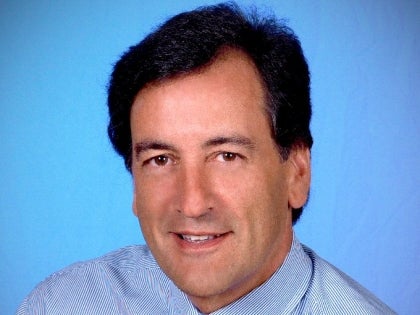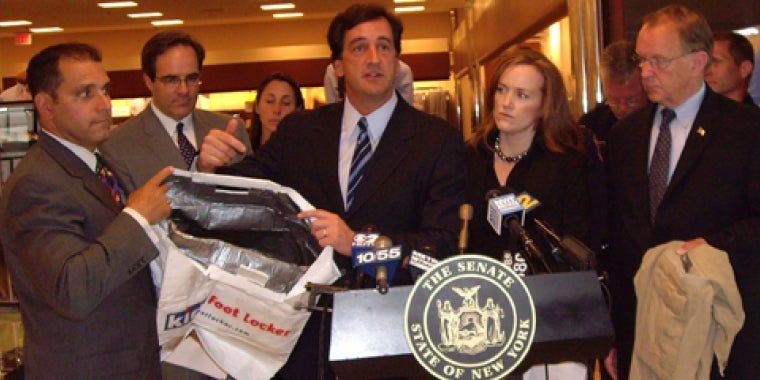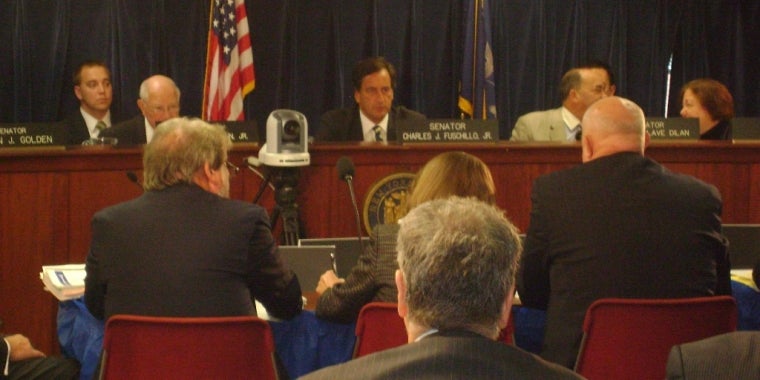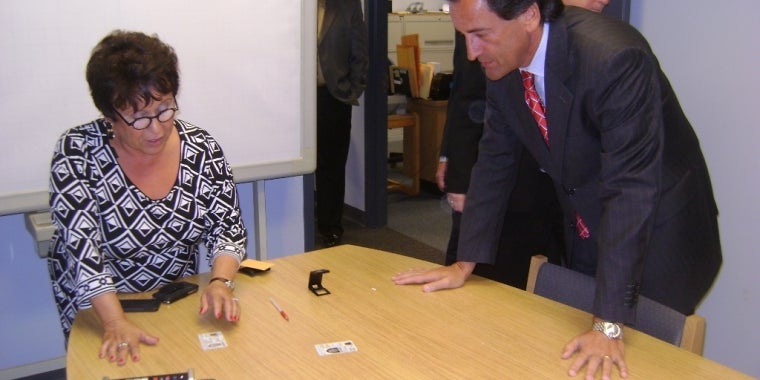
Senator Fuschillo & Law Enforement Join Forces To Combat Organized Retail Theft

Senator Fuschillo (8th District), sponsor of the legislation (S. 7623) and Chairman of the Senate Consumer Protection Committee, said, “The next time you come home from a shopping trip and your wallet is a lot lighter, you can blame organized retail theft. ‘Boosting’ and other organized shoplifting is having a huge impact on the New York retail industry, and law-abiding citizens are paying for it. These professional thieves are trained to know what they can and can’t do under current law to get away with the goods and avoid prosecution. This legislation would protect honest consumers by giving law enforcement the tools they need to stop these teams of thieves.”
“We need to up the ante on these professional thieves," said District Attorney Rice. "Honest consumers are forced to foot the bill for their crimes. This legislation needs to pass immediately so that we can go after these rings and target this billion dollar industry.”
Nassau County Police Commissioner Lawrence W. Mulvey said, “We support Senator Fuschillo's proposal as another tool that will assist the law enforcement community in its continuing efforts to curtail organized criminal enterprises from manipulating the criminal justice system. This legislation is aimed at deterring criminal activity and making those individuals who break the law more accountable for their behavior and at the same time protecting the interests of the honest consumer.”
Ted Potrikus, Executive Vice President and Director of Government Relations for the Retail Council of New York State, said, "The entire retail industry appreciates and welcomes Senator Fuschillo's leadership and vision on an issue so important to us and to every person who shops in New York State. Organized retail theft means not only higher prices for honest shoppers, but, more importantly, potential risks to the health and safety of those who are buying products that have been stolen, fraudulently labeled, improperly stored, and put back out into the marketplace. Senator Fuschillo recognized this danger immediately, and we applaud the bill he has written to attack the problem head-on."
One of the highlights of the Senate legislation is that it would create the crime of organized retail theft, distinguishing that activity from shoplifting committed by an individual, and raising the penalties for this type of professional shoplifting from a misdemeanor to a felony punishable by one to 15 years in prison depending on the severity of the crime.
Highly organized shoplifting rings are using “booster bags” and other anti-security devices to steal merchandise from store shelves in New York State and throughout the nation. Virtually everything sold in stores can be a target. The thieves often focus on over-the-counter drugs, health and beauty aids and clothing of all kinds; items that have a considerable value and are easily fenced at flea markets, pawn shops and ever increasingly through the Internet.
According to the Federal Bureau of Investigation, organized retail theft costs retailers as much as $30 billion annually. The National Retail Federation’s 2008 Organized Retail Crime survey reported that 85 percent of companies said they have been a victim of organized retail crime, which is an increase of six percent from 2007.
“Booster bags” are ordinary shopping bags lined with tinfoil to block the signal from the anti-theft sensors on store merchandise. The bags, which can be created in minutes, allow thieves to quickly clear the shelves of merchandise and leave a store without tripping security sensors. Tens of thousands of dollars worth of items can be stolen in less than a half hour.
These professional thieves know that it is currently only a misdemeanor to steal items worth up to $1,000 from one location. The thieves travel from location to location and knowingly curtail their theft just below that threshold.
Specifically, Senator Fuschillo’s legislation would:
- Establish the crime of organized retail theft defined as engaging in organized shoplifting with the intent of making a profit and making it a felony crime (currently it is only a misdemeanor under petite larceny law);
- Create penalties for leaders of shoplifting rings (grand larceny in the 2nd degree), a C felony carrying up to 15 years in prison and a fine of up to $250,000 or five times the retail value of the merchandise seized at the time of arrest, whichever is greater;
- Allows prosecutors to aggregate (add together) numerous petite larceny charges that are part of the same crime spree into one crime, so that they meet the level of the statutory $1,000 threshold which allows prosecution of grand larceny in the fourth degree, an E felony, punishable by up to four years in prison;
- Provide New York State law enforcement parity with the State of New Jersey which already has an organized retail theft statute on the books;
- Allow counties to prosecute organized retail thieves operating across county borders;
- Establish penalties for use of store emergency exits as a means of escape by organized theft rings, a class E felony, punishable by up to one to four years;
- Prohibit the possession of anti-security items such as booster bags with the intent to use them to steal property from a retail store and establishes the crime as a class A misdemeanor, punishable by up to one year in prison;
- Make it a crime to transfer, make, alter, counterfeit or reproduce a retail sales receipt or universal product code (UPC) if the individual knows that it is counterfeit. Different levels of the crime would be created based on the number of fraudulent receipts and UPCs, ranging from class A misdemeanor to class E felony. Also makes it a class E felony to possess a device that manufactures fraudulent retail receipts or UPCs;
- Strengthen current law to make it easier to combat the sale of baby foods and non-prescription drugs, products that are compromised when exposed to sunlight and heat, through flea markets and other itinerant vendors. Also expands the statute to prevent the sale of cosmetics and batteries as well, which are often the target of professional thieves.
TO SEND AN EMAIL TO SENATOR FUSCHILLO, PLEASE CLICK HERE.
IF YOU WOULD LIKE TO RECEIVE REGULAR UPDATES FROM SENATOR FUSCHILLO, PLEASE CLICK HERE.


